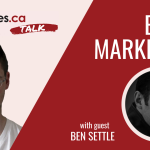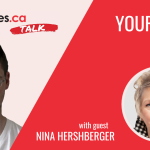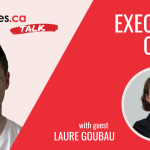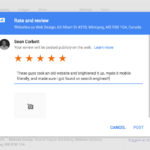Sean interviews PPC expert Daniel Moscovitch on the right way to use Google Ads in your overall SEO strategy, plus some of the things to avoid.
Learn more about Daniel at https://www.morehotleads.com/strategy/.
Click above to listen to the 20 min audio.
Read Full Transcript
Sean Corbett:
We’re going to talk about using Pay Per Click ads to send your website a whole bunch of traffic from Google, but to do so the right way. So what I’ve done is I’ve brought in Daniel Moscovitch, he’s the co-founder of More Hot Leads. He’s a Certified Google Partner, who’s devoted over a decade to leveraging traffic from Google to help small businesses get consistent and reliable leads. Daniel, thanks for being here.
Daniel Moscovitch:
Oh, it’s great to be here. Thanks for having me, Sean.
Sean Corbett:
For sure. So I’ll jump in just to ask you a little bit about your background and expertise, basically why people should listen to you.
Daniel Moscovitch:
Sure, no problem. I got into this business working at a digital marketing and SEO agency living in Tel Aviv, when I was there. I was working for one of the many, many agencies they have there. If you don’t know, Tel Aviv’s a hotspot for digital marketing agencies, it’s pretty amazing, some of the top agencies in the world come out of there. I got a job out of school after doing my masters there. Had no idea about SEO or digital marketing at all, but was very intrigued when I started seeing job postings for it. And I dove in head first and I haven’t stopped swimming since, to use that analogy.
Daniel Moscovitch:
And yeah, I have been predominantly doing SEO for the last 10 years now. And then have dabbled with a lot of Google Ads and targeted ads, Facebook ads, Instagram ads, over the last five years. And our digital marketing agency does all three, SEO, Google Ads, targeted ads, work with local businesses, mainly doing lead generation. And then we’ve also started working with some e-commerce businesses over the last few years, as well.
Sean Corbett:
Very cool.
Daniel Moscovitch:
Especially since COVID. Yep.
Sean Corbett:
Yeah, that’s right. Everybody’s e-commerce and online now.
Daniel Moscovitch:
Yes.
Sean Corbett:
Yeah, so your foundation, like you said, was in SEO and then obviously branched out and did other stuff like Pay Per Click. So in your opinion, is it a fairly intertwined strategy, like businesses should be using both simultaneously?
Daniel Moscovitch:
Yes. The way that I often put it is that SEO is going to be your long term main money maker. When I’m looking at client reports at the end of the month, it’s still by far, the majority of traffic is driven from organic search for all of our clients. It doesn’t even compare sometimes once the SEO starts kicking in. And I’ll get to that in a minute. However, it’s nice to have that extra stuff, just in case. And there are some reasons that I think that it’s important to have a holistic strategy that’s both organic and paid, as well. So I always say it’s the cherry on top.
Sean Corbett:
Nice. Okay. So yeah, then maybe we can expand on that with the next question. Just to give the listeners a little bit of background. We used to call it Google AdWords, now it’s called Google Ads. The general category is PPC because you Pay Per Click. So just kind of diving into the Pay Per Click realm and then maybe you can bring it back to how it’s the cherry on top here. I’d just like you to tell us, what do you see is the biggest misconception small businesses have about using PPC ads?
Daniel Moscovitch:
The biggest misconception that they have, I would say, is that it’s quick and inexpensive to do it right. Or that you can set it and forget it. I would say those three things.
Sean Corbett:
Okay.
Daniel Moscovitch:
So to touch on point number one, quick, it is way quicker than SEO and this is kind of often why I always suggest and urge our clients to do all of it, go all in, in their marketing. Because SEO nowadays is taking anywhere between six to twelve months to really kick in. Sometimes we get some quicker results, if it’s a less competitive industry, especially in the Google map areas. But with Google Ads, you could see wins a lot quicker than that. And we could probably see leads and traffic coming in within the first few days of running a campaign. However, you’re not necessarily going to make all of your money back right away. And so I’d say that is the biggest misconception there.
Daniel Moscovitch:
The second misconception is the cost. It takes a while for someone who really optimizes a campaign to lower the cost per click. And it really depends on the industry you’re in. I work in some industries where the cost per click is about $25, $30, $40, $50.
Sean Corbett:
Mm-hmm .
Daniel Moscovitch:
Or in some industries where the cost per click is only a dollar or even less than a dollar, still. So it really depends on the type of business because it takes a little while for Google to understand what is good and what is bad in your campaigns. It’s going to take some time for the campaigns to be fully optimized so that you’re actually making a good return on your investment. So that would be misconception number two.
Sean Corbett:
Well, we are kind of talking about a bridge between the two, right?
Daniel Moscovitch:
Yes.
Sean Corbett:
Starting off with Pay Per Click, but you really want to eventually get to a foundation of SEO. Now, I mean, if I could jump in on one of the things you said and just ask … obviously, I mean, I would think it was obvious and you’d tell me, maybe I’m wrong. But if you’re looking at a $25 per click price versus a dollar per click price, I’m assuming that the lifetime value of the customer is way higher and that’s very obvious to your clients.
Daniel Moscovitch:
Yes.
Sean Corbett:
Or is that something that’s not obvious?
Daniel Moscovitch:
Typically it is.
Sean Corbett:
Okay.
Daniel Moscovitch:
Typically it is. I mean, we still have to explain it and we have to show them that like, “Hey, yes, you’re going to have to spend $30, $50 a click. And you might need 10 to 20 clicks to get a lead or to get a client, but that client is going to be worth tens of thousands of dollars to you. It makes sense. It really comes down to math. And then again, how well your campaign is optimized.
Daniel Moscovitch:
But yeah, business owners need to know that. I always say that we can start getting results within the first few months, but give us three months to fully optimize your campaigns.
Sean Corbett:
Yeah.
Daniel Moscovitch:
And actually that was the third point was it’s not a set it and forget it method. Because a lot of business owners just do that. And then they say, “It doesn’t work.” And I go into the campaigns and say, “That’s because you haven’t changed anything and you’re still getting terrible clicks. And you’re getting clicks from completely irrelevant keywords or you’re getting clicks from competitor’s names because you’re not actually going in to optimize your campaigns.” So there’s a reason it doesn’t work. You’re wasting your budget on clicks that were never going to convert.
Sean Corbett:
Yeah, I don’t think people realize how … as the system itself is learning and you’re starting off at maybe more per click. And then they start to get this feeling of doom like, “Oh, at that price, it better start getting results fast.” You telling them, “No, it’s going to tick down.” But also we’re going to go and look … I mean, I don’t know how often you do it. We’re going to go look every day, every week, whatever, for all the negative keywords we have to filter out. And like you say, they might brainstorm that list at the very start and then they never even look again.
Daniel Moscovitch:
Yeah, exactly. Exactly. They never look again, they never go in to see what clicks are actually being searched for. I mean, that is one of the main things that I have to tell clients is that as smart as Google is, it’s not that smart. So if you’re a roofer and you want to bid for like roofer in your city, it might show your ad for roofing shingles, even though you’re not selling roofing shingles. It might show your ad for someone looking for best roofs for rain or something like that. Even though you’re not trying to do that because you have the word roof or roofer in it, Google is going to show your ad until you keep on telling it, bad Google. No, we don’t want to show for these keywords. So it is a thing that you get to train it on.
Sean Corbett:
Totally. And when you’re setting up one of these campaigns for a client for the first time, does it typically fall one to the other, that you’re focusing on awareness? Or are you more focusing on making an end sale?
Daniel Moscovitch:
At first, we always start with top of funnel broader things, just start getting some traffic to see what kind of keywords are out there. We also always launch a — and this is typically like a very minimal budget per day — branded campaign bidding on their brand and other competitors, as well. Because we don’t want their competitors to show up for when people search for their brand.
Sean Corbett:
Mm-hmm.
Daniel Moscovitch:
So we want to make sure we’re collecting those searches, as well. And if there’s any competitors that they also want to show up for, if people are searching for them, we’ll bid on them as well. So we have that awareness campaign, as well. And then we have specific, further down the funnel that are more exact match or phrase match campaigns, trying to collect that lead. Because at the end of the day, that’s where we’re going to show our results to our clients. We’re not necessarily about, “Hey look how many clicks we got.” We’re about, “Look how many leads we got you.” I’d rather have 10 clicks and five leads than a thousand clicks and two leads.
Sean Corbett:
Totally. And on that topic, I think a lot of folks, when they do a PPC campaign or even just SEO in general, they don’t even start thinking about that their pages are going to have to change, as well. Because now how do you capture that traffic? Maybe they don’t even have an email list where they opt people in. Maybe all they have is a phone number or whatever. So do you find that that’s also, there’s a bit of an explaining going on there where you’re like, we can bring in the traffic, but then what are you going to do to actually harness that traffic and convert them?
Daniel Moscovitch:
Yeah, it’s our first thing we always start with, it’s number one. And when I’m doing a proposal or a pitch in our pitch deck, we have to start with making sure your website or your webpages are optimized for conversions. Especially if we’re going to be paying for traffic, we don’t want to send it somewhere that it’s not optimized for conversions.
Daniel Moscovitch:
So like you mentioned, do they have a clickable phone number? Do you have a call to action? Do you have a lead capture? Those are like the design elements that we always want to make sure are there. I hate when people have to go click to another page to contact people. I always like to have an embedded form if possible, or a popup form, we find much better results there. And then the other thing is the content, the right call to action. Is it speaking to them? We’ve tested a lot of landing pages where the business is all about how great they are and nothing about the customer they serve or the client they serve.
Sean Corbett:
Right.
Daniel Moscovitch:
So we like to change the language and the content there to always say, “Hey, we get you. You have a problem right now, you have an issue, you need us. Here’s why we can help you.”
Sean Corbett:
I like to call those websites Striving And Priding websites.
Daniel Moscovitch:
Oh, I like that.
Sean Corbett:
They’re always … right? They pride them themselves on blah, blah, blah. “And we strive to be”, and I’m thinking, “Man, can you come back when you actually figured this stuff out, so you can solve my problem?”
Daniel Moscovitch:
I like that.
Sean Corbett:
Yeah. Feel free to use it. It’s my copywriting burn. Okay. So now let’s say we got some listeners, they probably have done Google Ads in the past. Some of them may be doing Google Ads right now, but they’re just not satisfied with the results they’re getting. So I wondered if you could maybe give them one to two easy wins they could do right away just to see some improvement.
Daniel Moscovitch:
Yeah. I would make sure that you are checking your search terms. So there’s difference between the keywords, it’s the keywords that you’re putting into Google. And your search terms are the actual terms that people are searching, that your ads are showing up for. And make sure you’re going through those on a regular basis and add the ones that you don’t think are relevant to your negative keywords.
Daniel Moscovitch:
And then, try some exact match or phrase match campaigns. Yes, they’re going to pay more for the clicks. But you’re going to get better quality clicks there, as well. And then the final thing I would say is just make sure you have one campaign… like I said, typically we do a separate campaign because we make sure the budget is a little bit lower than the main services that we’re trying to go after… for branded. So have one campaign set aside just for your brand, for people who are doing branded searches. Because you’d be surprised how many competitors of you might be, we call it brand jacking, stealing traffic when people are searching for you.
Sean Corbett:
That’s good to be aware of. What would you recommend is the frequency someone should go in and check those search terms?
Daniel Moscovitch:
It depends on the search volume of things. I would say definitely at least once a week. We have a team that goes into our client’s accounts on almost a daily basis.
Sean Corbett:
Nice.
Daniel Moscovitch:
And does that. Just because we want to make sure that our campaigns are running as optimized as possible. But yeah, it shouldn’t be like a once in a month thing.
Sean Corbett:
Okay, perfect. Yeah, and again, folks, there’s the benefit of paying somebody to maintain it for you because you probably don’t want to be pulling it up once a day because you’re busy with other stuff. So that’s why you hire folks like Daniel. Now maybe you could tell us a story, like a specific story, about a business that you helped improve their Pay Per Click ads.
Daniel Moscovitch:
Sure. Yeah. We got a couple that come to mind. A local flooring company that we work with, basically what was happening was people were brand jacking them. So we started doing some branded campaigns and we also changed one of their call to action buttons on their site from, “check out our projects” to “request a quote”. So instead of “check out how great we are”, it’s request a quote. Because at the end of the day, that’s really what people care about and leads just shot through the roof.
Sean Corbett:
Nice.
Daniel Moscovitch:
That was one thing that I thought was really great. Recently, we’ve also been able to lower the cost per acquisition of lead acquisition for a number of our clients, just testing different bidding strategies, which has been great. And we’re seeing some really good results with our shopping ads for our e-commerce clients recently. I don’t have the specific numbers, but we do like that. We’re seeing that those are converting pretty well and pretty low cost per click as well.
Sean Corbett:
Nice. Any particular niche? Or are you spread out in a bunch of different ones?
Daniel Moscovitch:
Currently More Hot Leads is spread out to a bunch of different niches and it’s driving us nuts. So we are in the process of launching a niche specific agency, as well.
Sean Corbett:
Oh cool.
Daniel Moscovitch:
That being said, if it’s the right type of client and then we can help them, then we would still take clients on in the legacy agency. But the niche agency is called Flooring Pros Marketing. So we’re going to be working with flooring contractors and carpet contractors throughout Canada and the United States.
Sean Corbett:
Nice. Out of curiosity, totally unrelated to this conversation. But are you finding that those clients are having trouble with the supply chain issues right now?
Daniel Moscovitch:
That is a good question. I know that some of my flooring clients had stocked up.
Sean Corbett:
Okay.
Daniel Moscovitch:
I’m sure some of them are, especially the ones who like rely on like European hardwood stuff. For sure. Yeah. I’m not too aware of too many who are struggling there.
Sean Corbett:
Got it, yeah.
Daniel Moscovitch:
Because I think they stocked up.
Sean Corbett:
Yeah. See, I just destroyed the podcast from being evergreen by saying that. But anyway, around here, it’s really weird. There’s a lot of flooring places … I don’t need flooring, so I don’t notice it. And all of a sudden, every flooring place, there’s a sign advertising vinyl. So I’m thinking, “Oh, that must be all they have right now.” But anyway, we’ll see.
Daniel Moscovitch:
Luxury vinyl planks are the floors these days.
Sean Corbett:
That’s the thing? Okay.
Daniel Moscovitch:
That’s the thing.
Sean Corbett:
There you go. Competitive. So if you’re in the luxury vinyl plank e-commerce business, you have to call Daniel because he’s going to specialize in that. So that brings me actually to my last question, which is, if someone listening to this does want some help with Pay Per Click, with SEO, with the whole thing. Because obviously like we said, it’s kind of a package deal. And essentially the goal, obviously, to get leads from online sources. How do they get started with your legacy agency right now?
Daniel Moscovitch:
Yeah, they can go to MoreHotLeads.com and there is a … I think it’s MoreHotLeads.com/strategy. Definitely MoreHotLeads.com. And it’s been a while since I’ve suggested this URL, so I should probably know it. MoreHotLeads.com, you’ll find a button there to book a strategy session with me-
Sean Corbett:
Okay.
Daniel Moscovitch:
To request a strategy session. And then if you are a flooring contractor listening to this, then go to FlooringProsMarketing.com.
Sean Corbett:
Nice. And the strategy session, is that paid? Is that gratis? How does that work?
Daniel Moscovitch:
MoreHotLeads.com/strategy. It’s a free session. If we feel that we can help you, then we’ll hop on a Zoom call.
Sean Corbett:
Okay.
Daniel Moscovitch:
We’ll go through your website, your marketing. If you’re running ads, we’ll go over the ads currently, I’ll go over your SEO, see what we can do to help you drive more business. And yeah, just offer as much value as I can during our call.
Sean Corbett:
Perfect. And I’m going to put that link, obviously, in the show description for anybody who needs that. Daniel, you got the last word. Is there anything else you want to say about Pay Per Click?
Daniel Moscovitch:
Yeah, I would say that, Google traffic is still the number one traffic source. I know a lot of people like they got into the whole Facebook, Instagram, TikTok things. And not to say we don’t use that, but after all, I find that Google traffic works the best. Because if you look at it from a sales funnel perspective, if someone is performing a search in Google, you know that they’re interested in your product or service already. So you don’t really have to create that awareness stage. So you skip a stage in the funnel. So I would say if you’re not showing up on Google, then you’re still missing out. And the ones who are showing up on Google are definitely reaping the benefits there. I know a lot of business owners, they just don’t believe that they could ever do it and they just have not worked with the right businesses because it’s totally possible.
Sean Corbett:
Absolutely. Yeah, no, that makes total sense. Daniel, really appreciate your time and for coming on here today.
Daniel Moscovitch:
Thanks, Sean. Thanks for having me.
[et_bloom_inline optin_id=”optin_4″]




